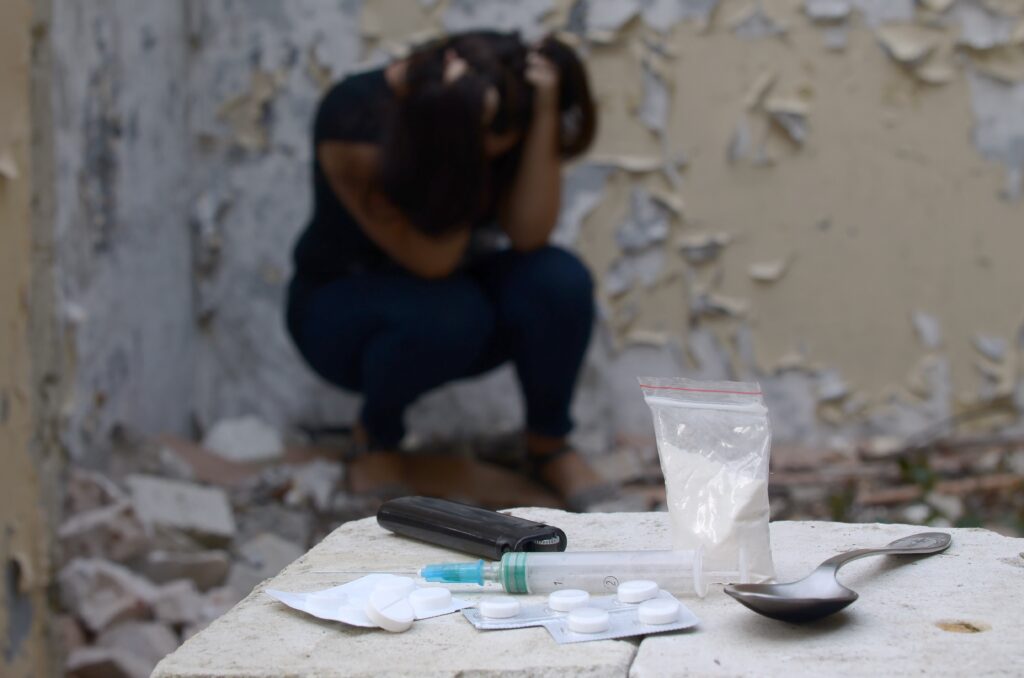
Understanding the connection between trauma and drug abuse is crucial for providing effective treatment and support to individuals struggling with substance abuse. Traumatic experiences can profoundly impact a person’s mental and emotional well-being, often leading to a higher vulnerability to addiction. This article explores the intricate relationship between trauma and drug abuse, examining the neurobiological, psychological, and social mechanisms at play.
Understanding the neurobiological impact of trauma on addiction is crucial for developing effective treatment strategies. Trauma can lead to significant changes in brain structure and function, which in turn can increase an individual’s susceptibility to substance abuse. Research has demonstrated that traumatic events can act as risk factors for substance abuse, increasing an individual’s susceptibility to engaging in substance use.
Trauma can cause alterations in various brain regions, including the amygdala, hippocampus, and prefrontal cortex. These changes can affect emotional regulation, memory processing, and decision-making abilities, making it more challenging for individuals to cope with stress and avoid addictive behaviors.
The brain’s reward system, which includes the release of dopamine, plays a significant role in addiction. Traumatic experiences can dysregulate this system, leading to an increased need for external rewards, such as drugs, to achieve a sense of pleasure or relief. This dysregulation can make individuals more prone to developing addictive behaviors.
Trauma can lead to a dysregulated stress response system, which may increase vulnerability to addictive behaviors. The body’s inability to manage stress effectively can drive individuals to seek substances as a coping mechanism. This maladaptive response can perpetuate the cycle of addiction and make recovery more challenging.
The impact of traumatic events on substance use and addiction underscores the importance of addressing trauma in addiction treatment. A trauma-informed approach is essential for the conceptualization and treatment of addiction.

Childhood trauma can significantly increase the risk of developing substance use disorders later in life. Individuals who have experienced trauma may turn to substances as a way to cope with the emotional pain and distress associated with their traumatic experiences. Substance use can provide temporary relief and numbness, allowing individuals to escape from the distressing memories and emotions related to their childhood trauma.
Furthermore, the link between childhood trauma and substance use can be attributed to the impact of trauma on brain development. Childhood trauma can alter the brain’s reward system and stress response, making individuals more susceptible to addictive behaviors. This neurobiological impact can contribute to the development of substance use disorders.
Studies have shown that childhood trauma load has a dosage effect on the severity of substance use, particularly alcohol, cocaine, and marijuana. The more types of childhood trauma experienced, the higher the level of substance use. Different types of childhood trauma may also be associated with specific substances. For example, childhood physical abuse has been correlated with the use of all substances examined, while sexual abuse in childhood is associated with cocaine and marijuana use only. Emotional abuse has been found to be associated with cocaine use as well.
Recognizing the connection between childhood trauma and addiction is essential for providing appropriate and effective treatment that addresses the underlying trauma and promotes lasting recovery.
Trauma-informed care is a vital approach in addiction treatment that recognizes the significant impact of trauma and acknowledges potential paths for healing. It involves understanding the signs and symptoms of trauma in both clients and staff, and integrating this knowledge into policies, procedures, practices, and settings.
In addiction recovery, it is essential to address and treat the underlying trauma to promote long-term healing and sobriety. Trauma-informed care approaches recognize the impact of trauma on individuals and provide a safe and supportive environment for their recovery journey. These approaches focus on empowering individuals, promoting their autonomy, and fostering a sense of safety and trust throughout the treatment process.
Recognizing trauma in addiction treatment and implementing trauma-informed care practices can greatly enhance the effectiveness of treatment and support long-term recovery. By addressing the underlying trauma, individuals can develop healthier coping mechanisms and find healing from both their addiction and the associated traumatic experiences.
It is crucial for treatment providers to create a safe and supportive environment where individuals feel comfortable sharing their trauma histories. This allows for a deeper understanding of the factors contributing to their addiction and helps guide the development of a personalized treatment plan.

Clinicians must identify and assess trauma symptoms that often contribute to someone’s patterns of addiction. Trauma has made a profound contribution to the development of substance use and addiction disorders for the vast majority of those who experience addiction. Unresolved trauma also contributes to patterns of relapse, especially when trauma-related symptoms have not been adequately identified or addressed in treating addiction.
Understanding the relationship between trauma and addiction is critical for the development of strategies and therapies that simultaneously address the underpinning trauma, physical substance addiction as a result of the trauma, and the new trauma caused by substance addiction. Here are some strategies to break the cycle:
Support systems play a crucial role in relapse prevention. Family, friends, and community support can provide the necessary emotional and practical assistance. Peer support groups offer a sense of belonging and understanding, while professional counseling and therapy can address both trauma and addiction.
It is crucial that clinicians identify and assess trauma symptoms that often contribute to someone’s patterns of addiction.

The link between trauma and addiction is often explained through the self-medication hypothesis. Traumatic events can trigger a range of emotional responses, including anxiety, depression, and post-traumatic stress disorder (PTSD). These psychological effects can lead individuals to use substances as a way to manage or numb their emotional pain. This coping mechanism, while temporarily effective, often leads to a cycle of dependency and addiction.
Individuals with trauma histories may be more vulnerable to addiction because of the mood-modifying properties of drugs of abuse and rewarding behaviors. Addictive behaviors may be an individual’s best attempt to cope with childhood trauma’s biological and neurobiological effects, which could include hyperarousal or depersonalization. People are self-medicating their dysregulation and trauma symptoms by using substances or behaviors. This maladaptive coping strategy can perpetuate the cycle of addiction.
Trauma can lead to emotional dysregulation, making it difficult for individuals to manage their emotions effectively. This dysregulation can result in heightened stress and anxiety, which individuals may attempt to alleviate through substance use. The temporary relief provided by drugs or alcohol can reinforce the behavior, leading to addiction. Understanding the connection between trauma and addiction is crucial in providing effective treatment and support for individuals struggling with substance abuse.
Traumatic experiences can have a profound impact on a person’s mental and emotional well-being, often leading to a higher vulnerability to addiction.
When trauma remains unresolved, the emotions associated with the event can become trapped within the individual’s psyche and body. This can significantly impact their ability to cope with stress, regulate emotions, and make positive choices. Unresolved trauma often leads to patterns of relapse, especially when trauma-related symptoms have not been adequately identified or addressed in treating addiction.
In addiction recovery, it is essential to address and treat the underlying trauma to promote long-term healing and sobriety. Trauma-informed care approaches recognize the impact of trauma on individuals and provide a safe and supportive environment for their recovery journey. These approaches focus on empowering individuals, promoting their autonomy, and fostering a sense of safety and trust throughout the treatment process.
Understanding the connection between trauma and addiction is a crucial step in providing comprehensive and empathetic care to individuals struggling with substance abuse. By recognizing the impact of trauma on addiction recovery and implementing trauma-informed approaches, treatment providers can help individuals heal from their past traumas and build a solid foundation for lasting recovery.

Family and community support play a pivotal role in the recovery process. Strong social networks can provide emotional stability, practical assistance, and a sense of belonging, which are essential for individuals healing from trauma and addiction. Families can help by creating a supportive home environment and encouraging healthy habits.
Peer support groups offer a unique form of assistance by connecting individuals with others who have similar experiences. These groups provide a safe space for sharing stories, offering mutual support, and learning coping strategies. The sense of camaraderie and understanding in peer support groups can significantly enhance self-efficacy and reduce feelings of isolation.
Professional counseling and therapy are crucial components of a comprehensive recovery plan. Therapists trained in trauma and addiction can help individuals process their experiences, develop coping mechanisms, and work through unresolved issues. Integrating professional support with family and peer support creates a robust network that fosters long-term recovery.
The combination of family, peer, and professional support forms a triad that is essential for effective healing from trauma and addiction.
Understanding the intricate connection between trauma and drug abuse is essential for developing effective treatment strategies and providing comprehensive support to those affected. Traumatic experiences, particularly in early life, significantly increase the vulnerability to substance abuse and addiction. By recognizing and addressing the impact of trauma on addiction, healthcare providers can implement trauma-informed approaches that not only treat the addiction but also heal the underlying wounds. This holistic approach is crucial for fostering long-term recovery and helping individuals build a resilient foundation for a healthier future. As research continues to uncover the complexities of this relationship, it becomes increasingly clear that addressing trauma is a vital component in the battle against drug abuse.
Traumatic experiences can significantly impact an individual’s mental and emotional well-being, increasing their vulnerability to substance abuse as a coping mechanism.
Early childhood trauma can alter brain development, affecting the reward system and stress response, which makes individuals more susceptible to addictive behaviors.
Trauma can lead to changes in brain structure and function, particularly in areas related to the reward system and stress response, contributing to the development of addiction.
Trauma-informed care is crucial because it addresses the underlying trauma that may be driving substance abuse, leading to more effective and compassionate treatment outcomes.
Unresolved trauma can contribute to patterns of relapse and hinder recovery if trauma-related symptoms are not adequately addressed during treatment.
Social support from family, community, peer support groups, and professional counseling can provide essential emotional and practical assistance, aiding in the healing process and recovery from addiction.
